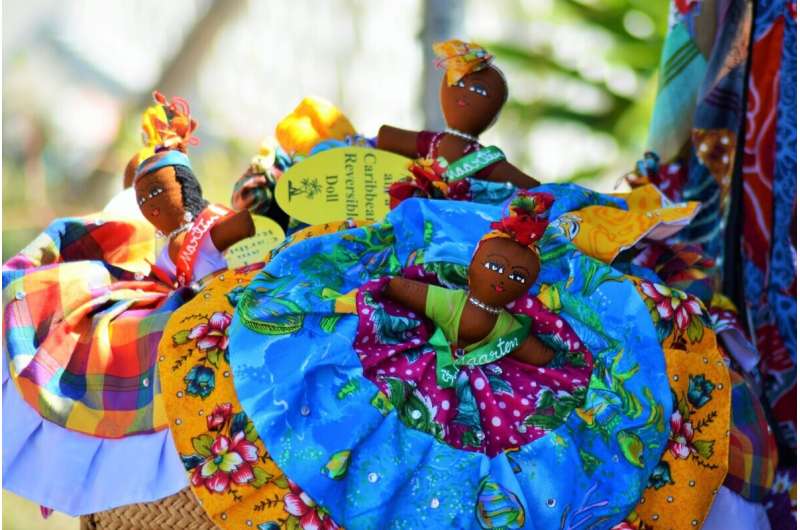How creole languages evolve may depend on how people began using them

Creole languages neither retain all grammatical features of their origin languages, as some have claimed, nor are creoles the simplest grammars in the world, according to a new analysis published in Nature by the University of Texas at Austin.
Creoles are formed from a combination of several languages over a relatively short time to allow for communication between people who do not share a common language, such as the French-based Haitian Creole that emerged during the Atlantic slave trade.
"The study of the evolution of creole languages is key to understanding the nature of the language faculty. Having emerged only a few centuries ago from extreme contact scenarios, creoles provide a unique window on the human mind and on the development of grammars," said Sandro Sessarego, author of the Nature study and an associate professor of Spanish and Portuguese at UT Austin.
For decades a debate has raged among linguists about the defining properties of such languages and their evolution. One side of the debate claims that creoles initially form as pidgins (bare bones means of communication with minimal grammar) that graduate to fully developed languages only after the next generation of speakers infuses them with more systematic grammatical structure. Some in this camp argue that creole languages display distinct profiles and are grammatically simpler than languages that evolved over longer periods.
On the other side of the debate are those who believe creoles to be no different from any other languages. A recent analysis of 48 creole languages by authors of this leaning found grammars to be strongly transmitted from the source languages, calling into question the existence of a rudimentary pidgin phase in creole formation.
In his study, Sessarego argues that both approaches fail to consider the underlying processes driving the formation of creoles, specifically those involved in adult second language acquisition (SLA). Creoles differ from mixed languages—those formed by bilinguals who opt to combine their native languages—in that speakers are not familiar with all languages going into the mix and thus creole formation involves individuals learning a new means of communication in a largely untutored setting.
"My position is on neither side of this controversy," Sessarego said. "Rather, this study shows that the best way to cast light on the nature of creoles and of any other contact variety, for that matter, is to focus on the cognitive processes that shaped them."
The study showed how creoles are born, in part, from two such SLA processes—borrowing, in which aspects (most vocabulary) are taken from the unfamiliar language; and imposition, in which grammatical structure is guided by speakers' familiar source languages. A third process called grammatical reduction results in certain aspects of languages (such as some morphological and tonal features) getting lost along the way.
This is the crux of Sessarego's criticism of the study that found grammars to be robustly transmitted in the formation of creoles. His closer review of the data from the 48-creole analysis found that its random selection of language traits on which to focus largely excluded exactly those that would be lost to grammatical reduction.
Sessarego's study offers several examples to counter the claim that creoles have simpler grammars than other languages. For example, due to the imposition phenomenon, Sranan Tongo, an English-based creole from Suriname, retained syntactic, semantic and phonological complexities from its source languages that are not present in English, making the resulting creole richer in those aspects of grammar.
The research showed that in addition to considering the cognitive processes involved, a full understanding of creoles and their evolution requires historical information rather than just close inspection of the languages in their present states.
More information: Sandro Sessarego. Not all grammatical features are robustly transmitted during the emergence of creoles, Humanities and Social Sciences Communications (2020). DOI: 10.1057/s41599-020-00611-x
Journal information: Nature
Provided by University of Texas at Austin





















